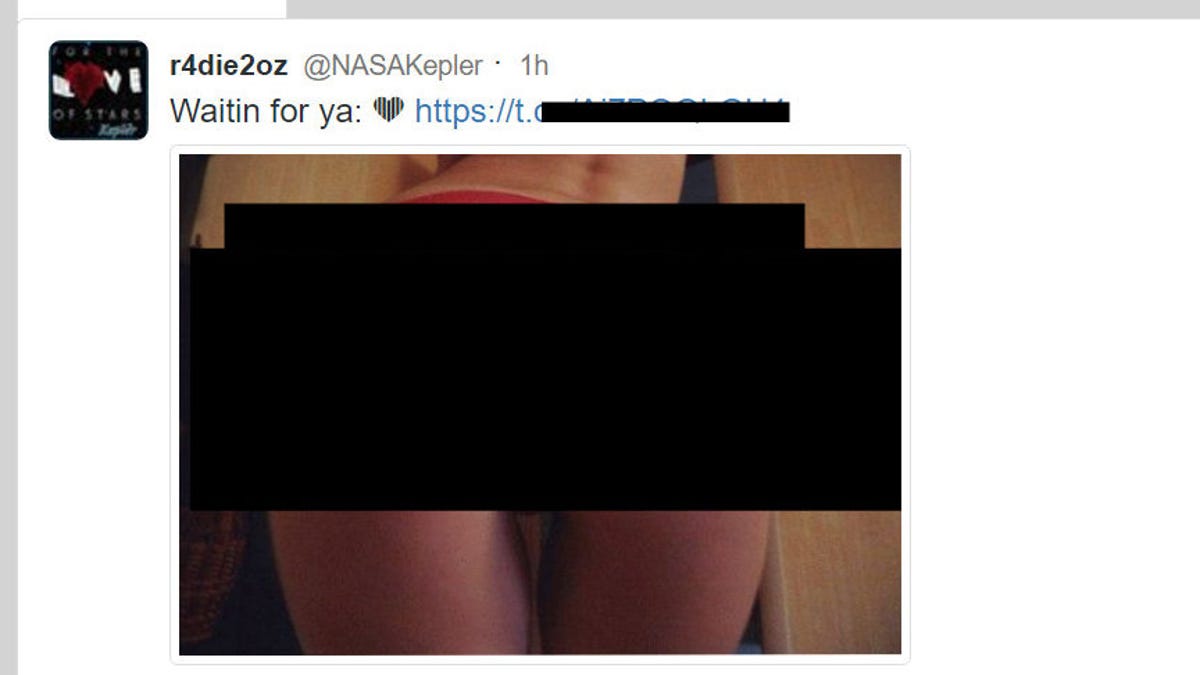NASA's Kepler Twitter hacked, tweets photo of woman's butt
Twitter account for the NASA telescope goes from spacey to racy after a hacker tweets an inappropriate image to its 569,000 followers.
NASA's Kepler Twitter account is the place to go to learn about the space telescope's new planet discoveries and view artists' concepts of those strange new worlds. For a brief few minutes on Wednesday, it was also the place to see a rather racy moon image. The account, @NASAKepler, got hacked, with the perpetrator posting a view of a woman's butt.
PostGhost, a site that tracks deleted tweets for verified accounts, notes that the rogue tweet was removed 16 minutes after it was posted. The Kepler account then tweeted out this message: "Our account was temporarily compromised. We're back in business, ready to tell you about new planet discoveries."
The raunchy tweet inspired space fans to make plenty of jokes on Twitter:
Kepler normally makes news for its planetary findings, like this batch of nine planets discovered in a habitable zone of stars where conditions could be right for liquid water, and potentially life.
Twitter has a long history of hacks, often targeted at celebrity accounts. A hacker compromised Jack Black's Tenacious D Twitter account earlier this year with a fake death notice sent out to his fans. Other big names, including Katy Perry and Facebook's Mark Zuckerberg, have also been victimized on the social-media site.
NASA's Kepler account seems like an unusual choice for a Twitter hack. "We're investigating the cause of this incident with Twitter," NASA social-media manager John Yembrick said in an email. "We have hundreds of official NASA Twitter accounts, and this is a very rare occurrence. We work to safeguard our accounts as much as possible. Although we monitor all of our accounts closely, we want to thank our followers for flagging the incident for us."
(Via Popular Science)


